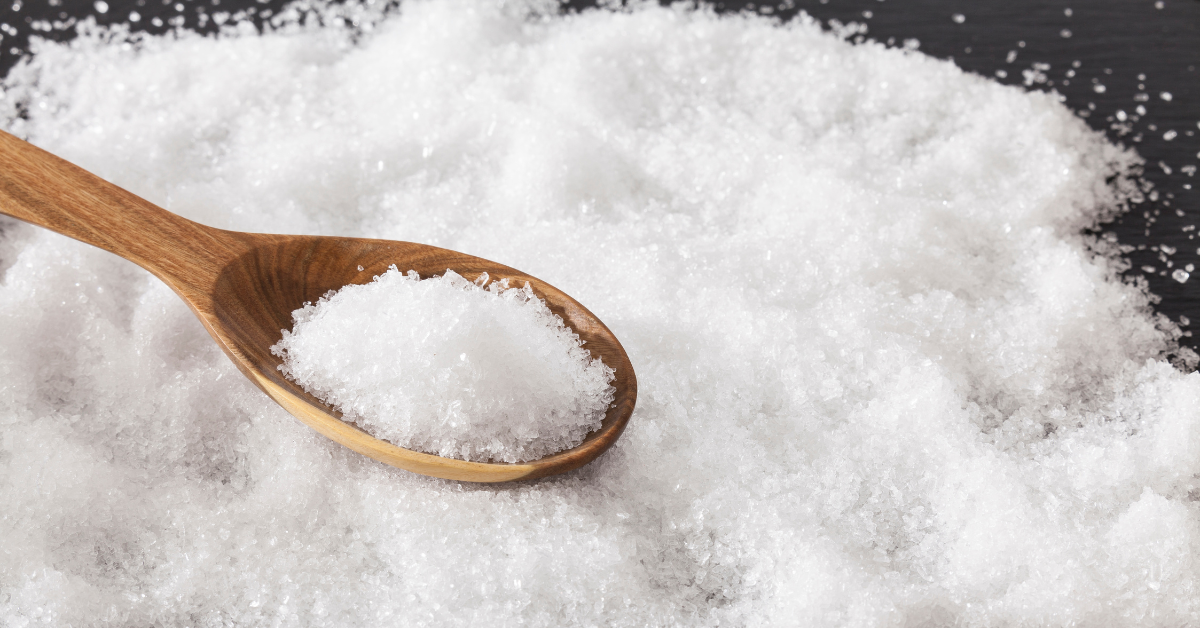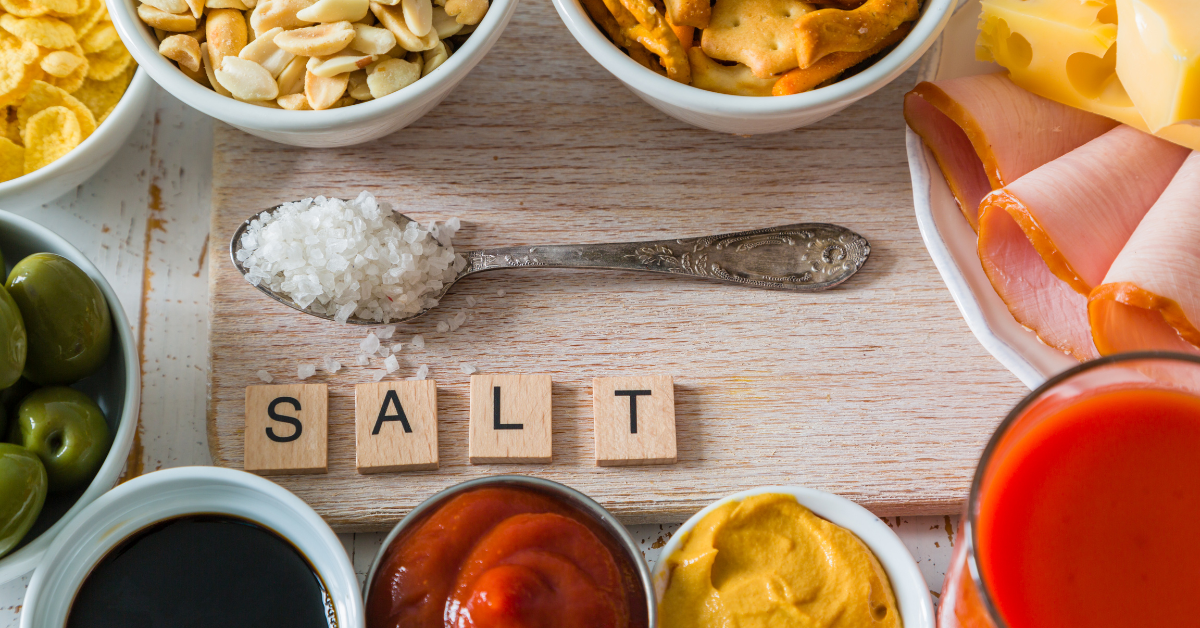When it comes to heart health, many individuals focus on reducing sodium intake to maintain optimal cardiovascular well-being. However, what often goes unnoticed is the crucial role that sodium plays in maintaining a balanced and heart-healthy diet. Sodium, an essential electrolyte, is vital for various physiological functions in the body, including fluid balance, nerve transmission, and muscle function. In this blog post, we will explore how sodium, when consumed in moderation, is a key element in supporting a heart-healthy lifestyle.
Here’s a quick summary of sodium-related terms you might find on food packages:
| Salt/Sodium-free | Less than 5 mg of sodium per serving |
| Very Low Sodium | 35 mg or less per serving |
| Low Sodium | 140 mg or less per serving |
| Reduced Sodium | At least 25% less sodium than the original product |
| Light in Sodium/Lightly Salted | At least 50% less sodium than the regular version |
| No Salt Added/Unsalted | No salt added during processing; may still contain some sodium naturally |
Understanding Sodium

Sodium’s Role in Fluid Balance
Maintaining the right balance of fluids in the body is crucial for heart health. Sodium helps regulate fluid balance by controlling the movement of water in and out of cells. Adequate sodium levels ensure that the body retains the necessary fluids to support overall hydration. When fluid balance is disrupted, it can lead to dehydration or excessive fluid retention, both of which can strain the cardiovascular system. Proper hydration is essential for optimal blood circulation, which, in turn, supports a healthy heart.
Nerve Transmission and Muscle Function
Sodium plays a vital role in nerve transmission and muscle function. Nerve cells, also known as neurons, rely on the movement of sodium ions to generate electrical signals. These signals are crucial for transmitting messages between the brain and different parts of the body. Additionally, sodium is essential for muscle contractions. The sodium-potassium pump, a key mechanism in muscle cells, helps maintain the right balance of sodium and potassium to ensure proper muscle function. A deficiency in sodium can lead to muscle weakness and cramps, adversely affecting the heart’s ability to pump blood effectively.
Blood Pressure Regulation
While excessive sodium intake has been associated with an increased risk of high blood pressure, it’s important to recognize that sodium plays a delicate role in blood pressure regulation. The body needs a certain amount of sodium to maintain blood pressure within a healthy range. Sodium helps to control blood volume, and when combined with other electrolytes like potassium, it contributes to the regulation of blood pressure. A balance between sodium and potassium is crucial, and both minerals play complementary roles in supporting cardiovascular health.
Balancing Sodium Intake

While sodium is essential for various bodily functions, the key to a heart-healthy diet lies in maintaining a balanced sodium intake. The American Heart Association recommends limiting daily sodium intake to no more than 2,300 milligrams, with an ideal target of 1,500 milligrams for most adults. Achieving this balance involves making conscious food choices, such as opting for fresh, whole foods over processed and packaged items. Increasing potassium-rich foods, such as fruits like bananas, oranges and leafy vegetables, can further enhance the overall electrolyte balance.

Gunja Parikh
MS, RD, LDN
Gunja is a Licensed and Registered Dietitian with a passion for helping individuals improve their eating habits to reach their nutrition goals. She completed her Master’s degree in Nutrition and Dietetics from Meredith College in North Carolina. Gunja completed her Dietetic Internship with 1200+ hours working in various Clinical, Wellness, Community, and Long-Term Care settings working with a wide variety of clients and health conditions….READ MORE

